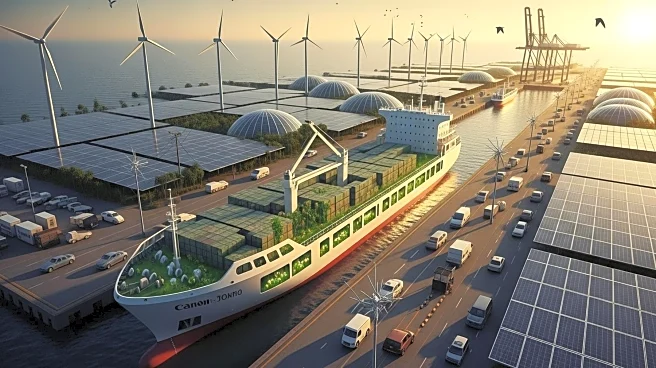What's Happening?
Brazil is making strides in decarbonizing its maritime transport sector, with five ports leading the initiative. The National Waterway Transport Agency (ANTAQ), in collaboration with the German development agency GIZ, has completed three phases of a decarbonization study. The selected ports—Santos, Itaqui, Pecém, Paranaguá, and Açu—are implementing measures such as solar panel installations and transitioning to electric equipment. These ports are incentivizing ships with lower carbon footprints through tariff discounts and priority berthing. The study recommends creating a National Green Hydrogen Plan and tax incentives to promote clean fuel adoption.
Why It's Important?
Brazil's efforts to decarbonize its ports are crucial for maintaining competitiveness in global trade and meeting international climate goals. The initiatives align with global emissions reduction targets, potentially improving air quality and reducing environmental impact. Successful implementation could position Brazil as a leader in sustainable maritime practices, attracting investment and enhancing its reputation in international markets.
What's Next?
The ports are developing comprehensive decarbonization plans, with Açu already completing its plan. Continued collaboration with international partners and government support will be essential for achieving the study's recommendations. The focus on green corridors and clean fuel adoption could set a precedent for other nations, influencing global maritime policies and practices.








